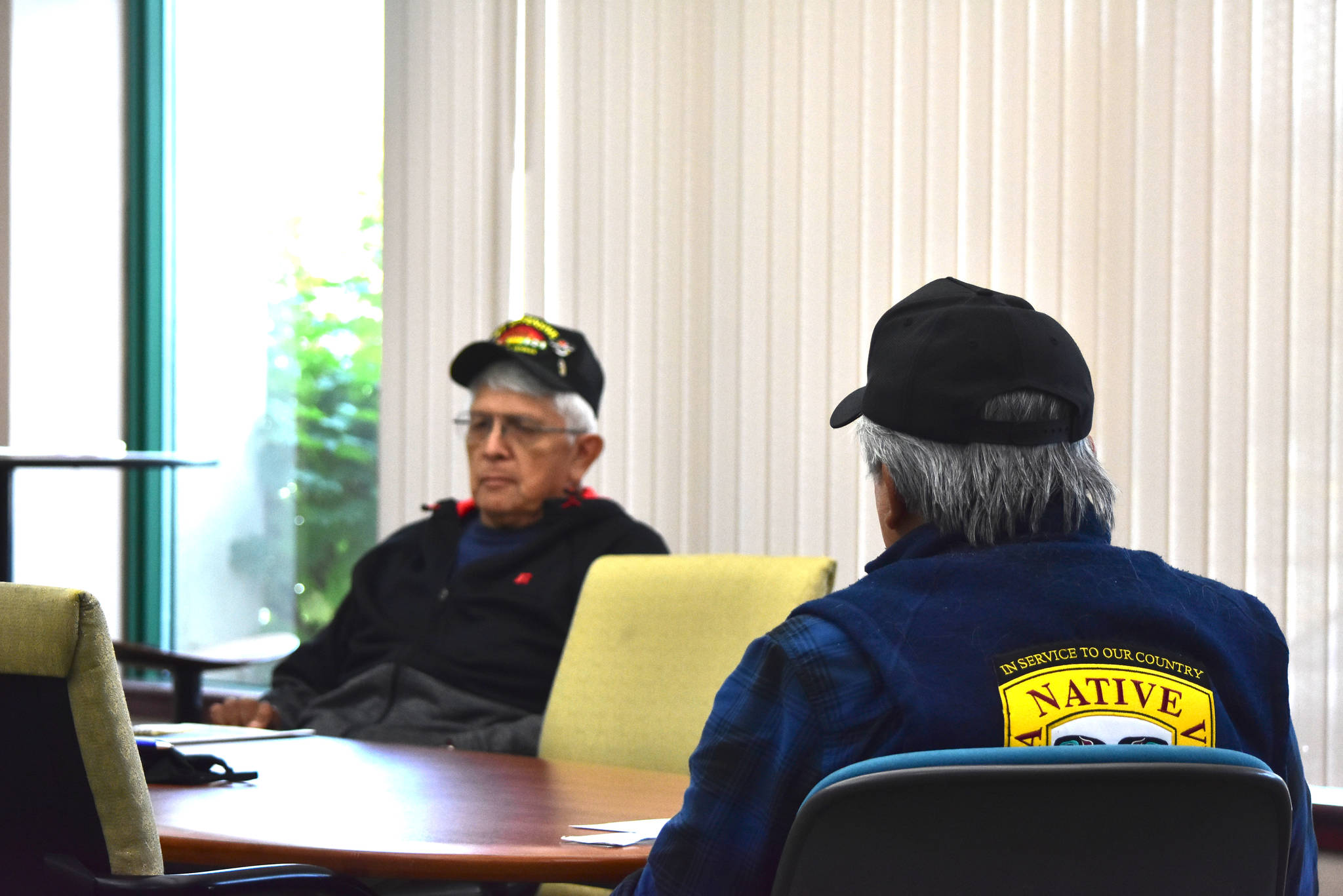The main photo has been changed.
When many Vietnam veterans rotated home from deployments in Southeast Asia, they were disparaged, cursed at, called baby killers and murderers.
Now, nearly 50 years after the end of that war and on the day of Vietnam War Veterans Day, groups across Alaska and across the country honored their sacrifice with traditional dance and affirmation of their sacrifice.
“This was a lot different from the time we first came home,” George J. Bennett Sr., a veteran of the Army’s 25th Infantry Division and a host of the event. “In 1968, when I first came home, some of us actually had a fear of coming home.”
That empty homecoming, returning to a country unable and unwilling to recognize the sacrifice and horror of that faraway conflict, was something that weighed on many, said Justin McDonald, who helped host the Zoom event.
[Department of Administration head announces Senate run]
“As a Native American man, as a veteran myself, we’ve been taught to hold our veterans in high regard, like our elders. It really hit me hard to see how our veterans were treated,” McDonald said over the zoom. “It’s not just an empty gesture to say, welcome home. Say it so you know they feel it. Say it with feeling.”
Groups sang traditional songs of honor, peace and victory in recognition of the veterans of that bitter war. Bennett mentioned the need to recognize all those who had served.
“It recognizes all of us. It recognized all the soldiers and the women who served. It takes five people to support one person in the field,” Bennett said. “That’s called logistics. It takes the people back on the base camps and on the Navy ships.”
This event is as much to recognize the veterans as to reconcile the bitter welcome home many of them received as they returned from the war, Bennett said.
“Vietnam Veterans Day alters the perception of society and how they saw us. They walk up to us, they shake our hands, they thank us for our service. That means a lot. It’s heartwarming, it gives us strength,” Bennett said. “For some of us, it gives us the opportunity to share our experiences. For some, who had horrifying experiences, we don’t want to share that. But we can share our laughter and the good experiences we had.”
A legacy of lasting wounds
The war was a brutal and hard-fought one, the jungles and highlands of Vietnam a far cry from the cool climes of Alaska.
“We were put to the test, as many of our fellow brothers and sisters were put to the test to defend our country and tribes,” said Sasha Soboleff in the opening dedication. “That kind of strife is all over the world.”
Many, including 226 Alaska Natives and American Indians, did not return home, according to the archives of the military.
“Unfortunately a lot of us gave our lives. And the ones that came home bear the wounds of the war and that will never go away,” Bennett said. “That is something that is embedded within us and something we will have to live with.”
Bennett recalled a time he’d run into fellow Hoonah resident and Alaska Native soldier James Lindoff on a firebase in Vietnam.
“We were in Vietnam together. James was with the 101st Airborne Division. I was with the 25th Infantry Division. Two different units, two different locations. His unit came to our base camp and I didn’t know he was there. One afternoon, I was walking up towards the mess hall. I saw this guy coming down the trail ahead of me. Pretty soon, James recognized me. The only people who would call me George McKinley were people who grew up with me in Hoonah. It was chance we crossed in Vietnam,” Bennett said. “It was really great to see my brother. James and I grew up together in Hoonah. We fished together, we hunted together, we played high school ball together, we partied together.”
The 101st had sent a detachment to reinforce the 25th ID’s location following intelligence that the base was going to get hit, including Lindoff, Bennett said.
“There was almost four, five months of fighting. We were pretty busy there. We were helping special forces at that time,” Lindoff said. “That was the first time I had to break off my belt from my M-60 (machine gun) to stop it from shooting, it was that hot.”
Alaska Native and Native Americans join the armed services at a higher rate than almost any other ethnic group, according to the department of Veterans Affairs.
“We took that oath, to defend our country against foreign enemies and domestic,” Bennett. “As Native people, we not only fought for this country, but for our ancestral tribal homelands, our tribes, our clans, our families. I thank you today for being part of that great generation of individuals who fought.”
• Contact reporter Michael S. Lockett at (757) 621-1197 or mlockett@juneauempire.com.

